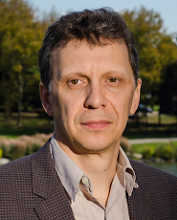Update (04/10/2013)
Came across another interesting video on the same subject (thanks to Stanislav Glozman)Original Post (12/13/2010)
Very interesting video that I found via a reference in one of the Information Technology (IT) online publications that I read on a pretty much daily basis:I liked many things about it - the format, in my opinion, is awesome; the presentation is dynamic; and, of course, the content is quite interesting. This "new theory of motivation" departs sharply from the established practice of monetary incentives and instead emphasizes the following three intrinsic human motivators:
- Autonomy
- Mastery
- Purpose

We have always wanted to be autonomous, competent, and connected; it’s just that now social media has become an environment for enacting those desires, rather than suppressing them.

Comments
Post a Comment